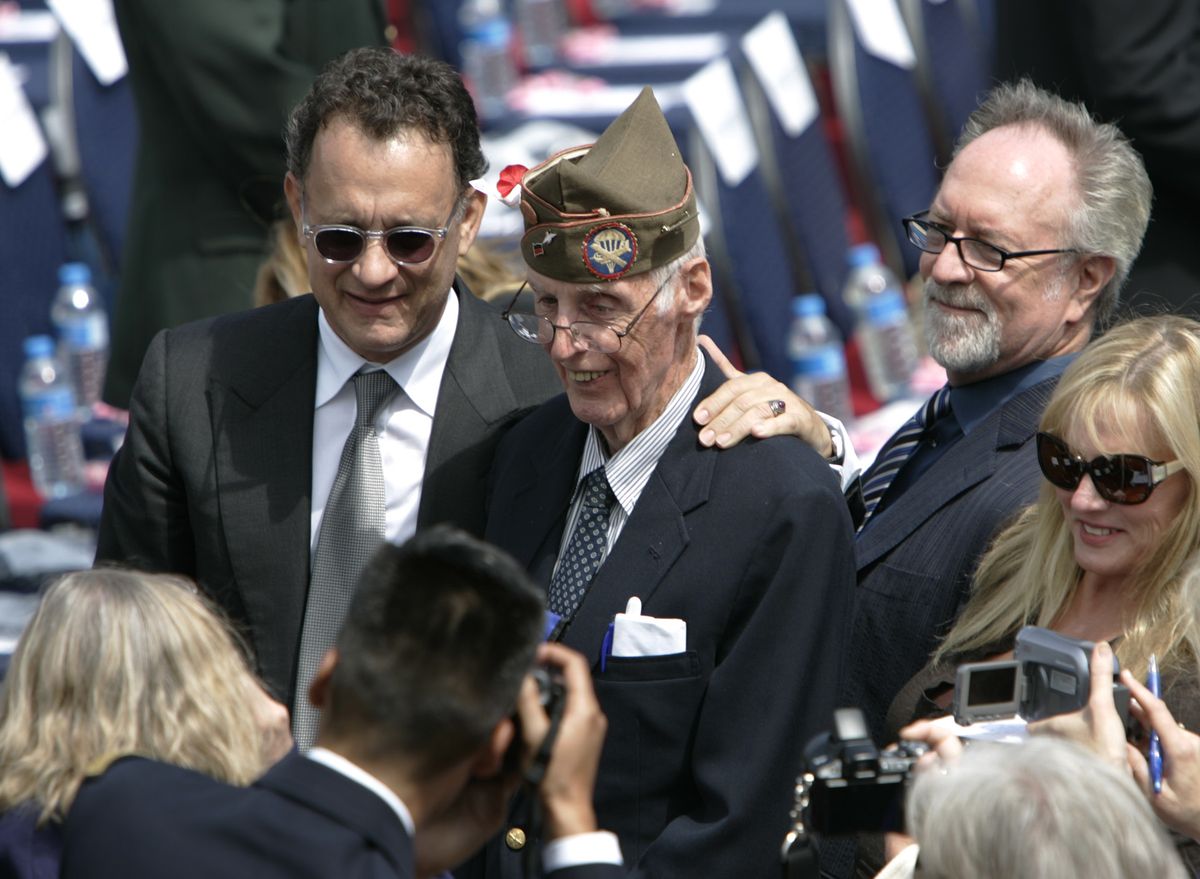Soldiers’ selflessness hailed
Same spirit needed today, Obama says

COLLEVILLE-SUR-MER, France – President Barack Obama urged the world Saturday to live up to the sacrifice made by thousands of Allied soldiers who struggled to shore here 65 years ago on D-Day, telling a hushed audience that “the selflessness of a few was able to change the course of an entire century.”
“For you remind us that in the end, human destiny is not determined by forces beyond our control,” Obama said during a ceremony commemorating the invasion. “Our history has always been the sum total of the choices made and the actions taken by each individual man and woman. It has always been up to us.”
Obama’s speech at the bluff-top cemetery overlooking Omaha Beach served to underscore the message he has sought to deliver throughout his trip to the Middle East and Europe. Using a mix of criticism and understanding, he has urged rivals and allies to work now to resolve conflicts based on his view of how their national interests coincide with those of the United States.
In Cairo, he appealed for a “new beginning” between the United States and Muslim nations, and at the Buchenwald concentration camp in Germany he demanded an end to religious and ethnic persecution, an implicit reference to Iran’s leaders who deny Israel’s right to exist.
Obama follows other U.S. presidents who have traveled to the Normandy American Cemetery and Memorial to remember the dead and thank them, along with the surviving veterans whose number declines each year.
The thousands gathered at the grave sites, where 9,387 soldiers lie beneath bone-white crosses and Stars of David, included active-duty troops, heads of state and Hollywood stars.
Actor Tom Hanks, who came ashore on D-Day in the movie “Saving Private Ryan,” posed for pictures.
Obama’s great-uncle Charles Payne, who as a young soldier helped liberate the Buchenwald concentration camp nearly a year after D-Day, watched from the front row alongside first lady Michelle Obama.
The U.S. president walked into the memorial’s semicircle of columns with French President Nicolas Sarkozy, Britain’s Prince Charles, British Prime Minister Gordon Brown and Canadian Prime Minister Stephen Harper.
They took seats among scores of surviving D-Day veterans, the audience stretching before them in a wide column that reached far back among the graves.
Early in his 15-minute speech, Obama acknowledged former Sen. Robert Dole, who was badly wounded in World War II and attended the ceremony with his wife, former Sen. Elizabeth Dole. Obama thanked Susan Eisenhower, granddaughter of Gen. Dwight D. Eisenhower, who the president noted “began this mission 65 years ago with a simple charge: ‘OK, let’s go.’ ”
In a ceremony here 25 years ago, President Ronald Reagan called the D-Day anniversary a moment “to celebrate the triumph of democracy.” A decade later, President Bill Clinton warned here “that progress is not inevitable. But neither was victory upon these beaches.”
In a speech that included tales of individual heroism and inspiring wartime industriousness in the United States, Obama echoed those earlier remarks.
“It was unknowable then,” he said, “but so much of the progress that would define the 20th century, on both sides of the Atlantic, came down to the battle for a slice of beach only six miles long and two miles wide.”
Families, veterans and young soldiers gathered under a row of pines, gazing down the deadly slope of hill to Omaha Beach and a shoreline where, at dawn 65 years ago, more than 135,000 U.S., Canadian and British troops landed under heavy German fire.